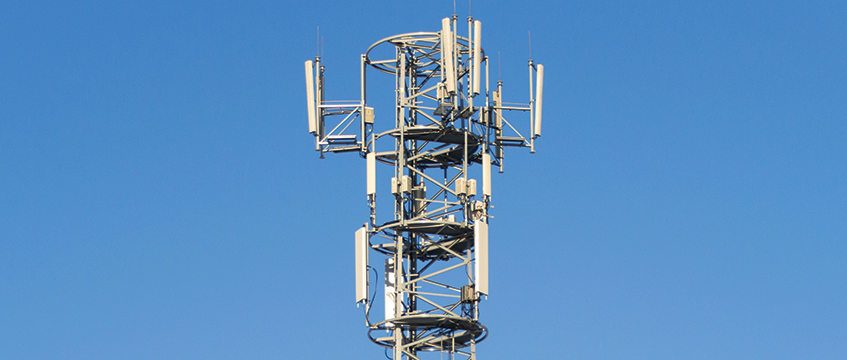The Product Security and Telecommunications Infrastructure Act 2022 received royal assent on 6 December 2022; some four months on, selected provisions are being brought into effect, slowly but surely. As ever, more good news for operators as the provisions broaden powers to upgrade and share equipment.
The enabling instrument is the Product Security and Telecommunications Infrastructure Act 2022 (Commencement No 1) Regulations 2023. On 7 February 2023, regulation 2 brought into force sections 57, 60 and 75 of the Act. Section 57 deals with rights to share apparatus, section 60 with the power to fly lines from apparatus kept by another operator, and section 75 with the meaning of the Electronic Communications Code (defined as “the electronic communications code set out in Schedule 3A to the Communications Act 2003”).
On 17 April 2023, regulation 3 brought into effect sections 58 and 59 of the Act in relation to apparatus installed before 29 December 2003.
The previous position
The existing Code contains rights to share and upgrade equipment. Paragraph 17 of the Code prohibits any attempt to limit or curtail the right to share or upgrade apparatus by rendering void any contractual clause forbidding the same or inserting qualifications, such as the payment of money. There are, however, conditions: there must be no adverse impact, or no more than minimal impact, on appearance; and secondly, no additional burden placed on the other party. An additional burden will be anything which has an additional adverse effect on the other party’s enjoyment of the land, or causes additional loss, damage or expense to that party.
In On Tower UK Ltd v JH and FW Green Ltd [2020] UKUT 348 (LC); [2020] PLSCS 229, the Upper Tribunal made it clear that the rights in paragraph 17 are the “irreducible minimum, in terms of upgrading and sharing rights” that operators are entitled to. The Court of Appeal ([2021] EWCA Civ 1858; [2022] EGLR 3) upheld this.
Extended powers
Section 57 inserts new code rights into paragraph 3 of the Code. These are (ca), (ea) and (fa), which explicitly set out the right for the first operator to share with other code operators, to carry out works in connection with sharing and to enter land for the purposes of, or in connection with, sharing, respectively.
Section 60 concerns the right to fly lines. Pursuant to Part 11 of the Code, operators have rights to “fly” lines between telegraph poles, but this does not permit the upgrading of equipment on a pole nor to share poles. The new section was added at the report stage in the House of Lords and aims to support roll out in rural and less densely populated areas by amending paragraph 74 of the Code so as to include rights to share in these circumstances, so long as none of the following three thresholds are met: (a) effect on appearance of the apparatus is more than minimal; (b) adverse impact on land on or over which the apparatus is kept is more than minimal; or (c) loss, damage or expense to any person with an interest in the land on or over which the apparatus is kept.
Sections 58 and 59 extend the automatic rights to upgrade and share set out in paragraph 17 to “non-Code” agreements, ie it has retrospective effect by extending the rights to apparatus installed under subsisting agreements and before 29 December 2003 where that apparatus is installed under land. There are conditions to be met, however. These are (1) that the upgrading or sharing has no adverse impact on the land; and (2) that the upgrading or sharing imposes no burden on any person with an interest in the land (to include anything that has an adverse effect on the person’s enjoyment of the land, or causes loss, damage or expense to the person).
The third condition is that, before the beginning of the period of 21 days ending with the day on which the main operator begins the upgrading or sharing, a notice is attached in a secure and durable manner to a conspicuous object on the relevant land. The notice must be positioned so it is “reasonably” legible, state that the main operator intends to upgrade the electronic communications apparatus or share its use as appropriate, state the date on which the main operator intends to begin the upgrading or sharing, give their contact details and, where sharing is intended, give the name of the other operator. Any person given a notice at that address in respect of that electronic communications apparatus is to be treated as having been given that address for the purposes of paragraph 91(2), which sets out the proper address for service of a notice under the Code.
Significantly, the new sections do not confer an access right on the “main operator” to enter the land for the purpose of sharing or upgrading, so that will need to have already been secured. Interestingly, nor does the new Act confer any rights on the operator benefiting from a sharing arrangement – it will remain to be seen whether operators will argue that the Code cannot possibly have been intended to confer rights to share in circumstances where there are no corresponding access rights for the sharer, but this does not seem unworkable since the main operator will already have access rights and, presumably, maintenance liabilities and so on.
Laura West is a senior associate (barrister) at Penningtons Manches Cooper









